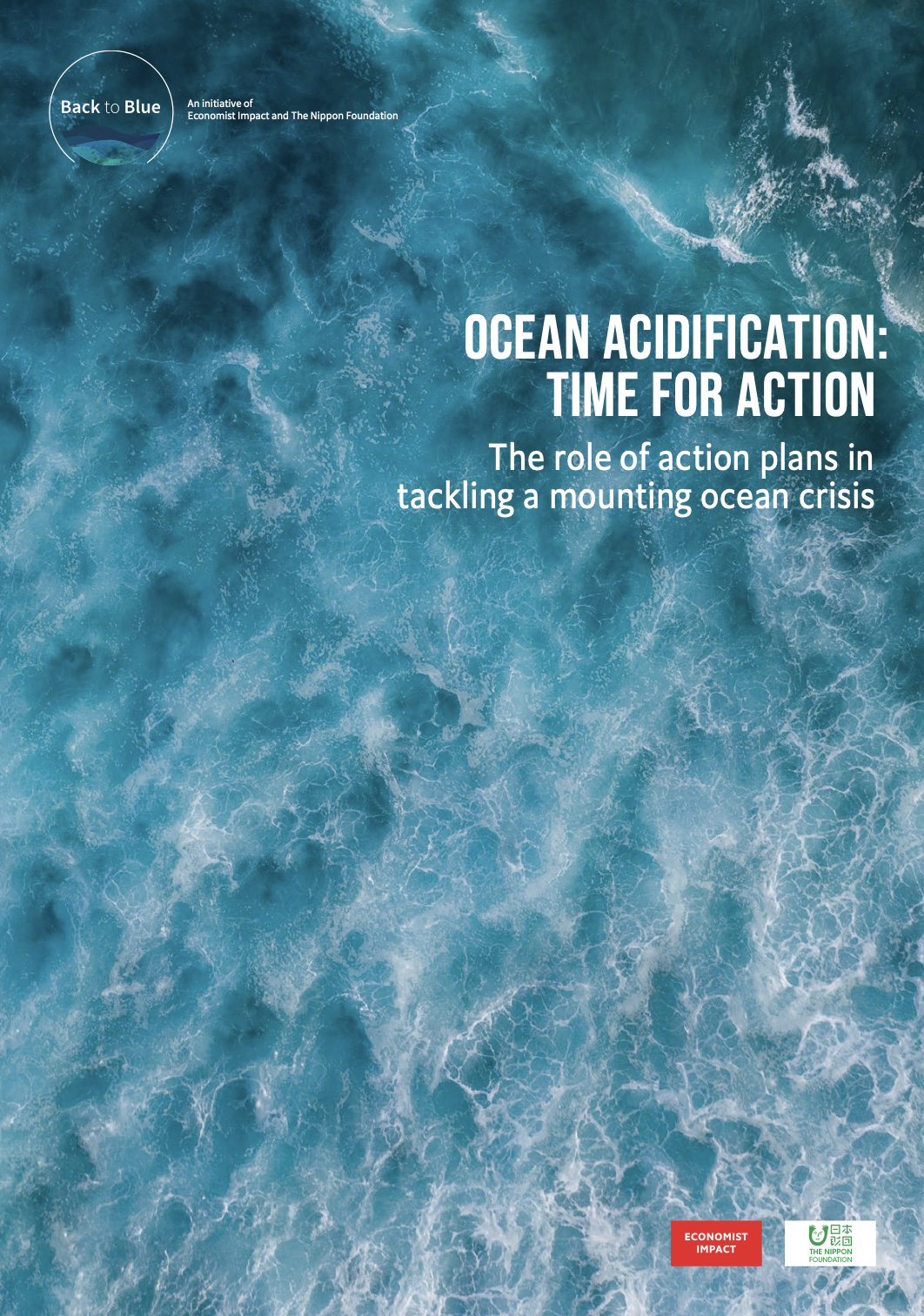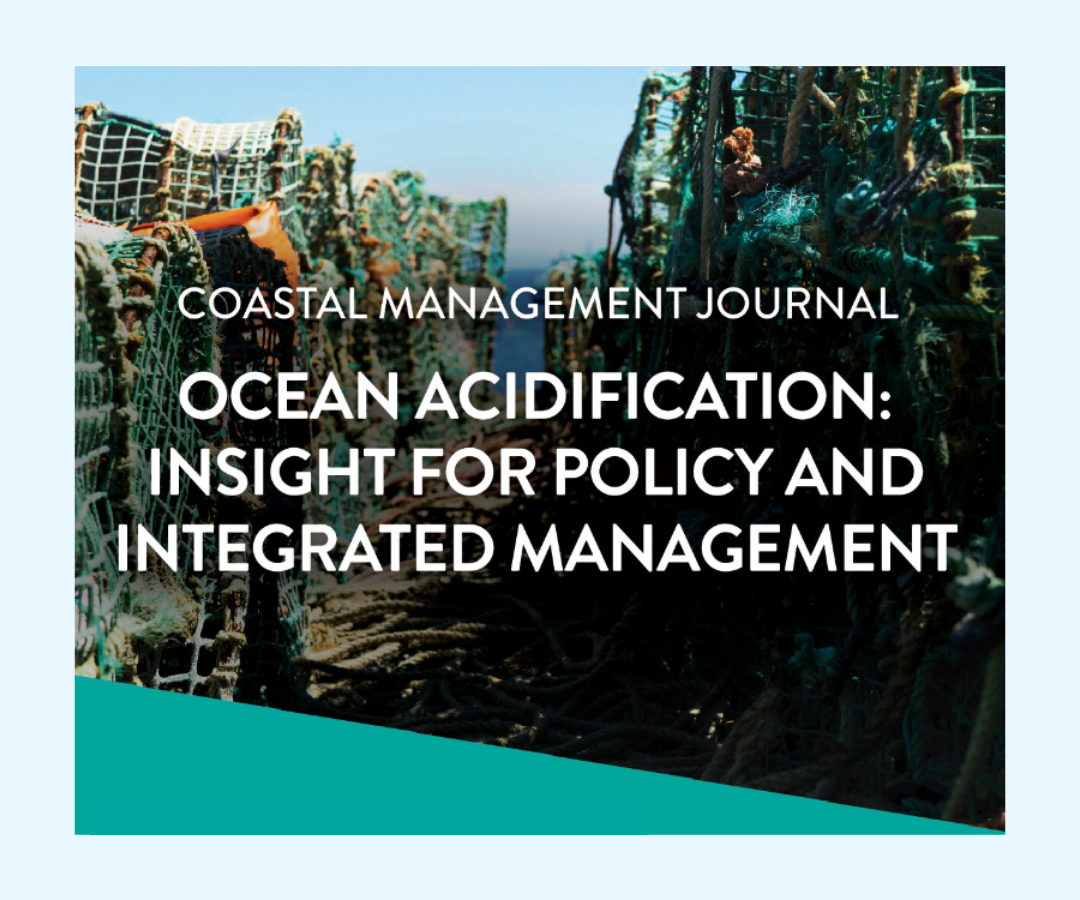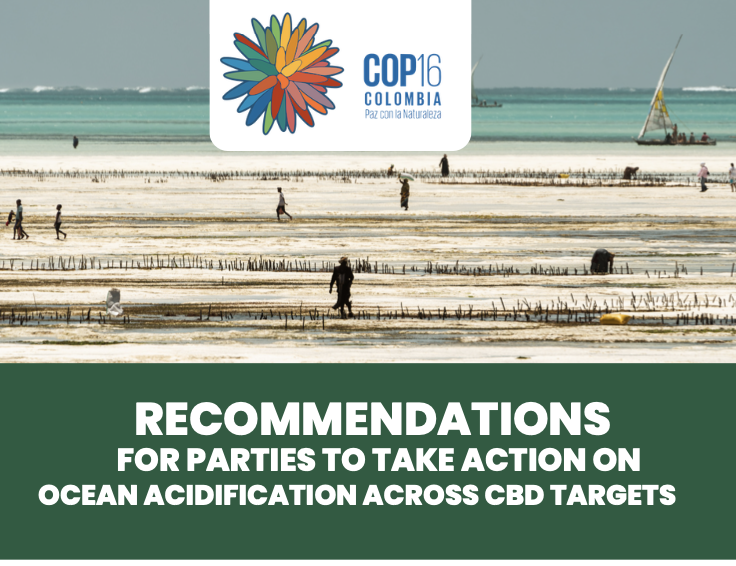pOLICY BRIEFS & publications
Recommendations for incorporating OA information to strengthen descriptors and support governments in achieving Good Environmental Status, 2024
exploring our changing ocean: impacts & responses to ocean acidification in the us, 2023
-
A collaborative OA communications project between the Aquarium Conservation Partnership, the OA Alliance, and NOAA’s Ocean Acidification Program.
The project includes the development of six interactive StoryMaps showcasing relevant ocean acidification trends, science activities, stakeholder engagements and policy responses taking place across regions where NOAA supports U.S. Coastal Acidification Networks (“CANs”). The six regional NOAA CANs include activities in Alaska, California Current, North Atlantic, Mid-Atlantic, South Atlantic and the Gulf.
-
The OA Alliance—and relevant regional practitioners—have reviewed the MSFD and suggested the strongest pathways for ensuring OA is incorporated into the MSFD. This includes an assessment of which Descriptors are most apt for integrating, increasing or utilizing OA data and information.
Ocean Acidification, A Time for Action: The role of action plans in tackling a mounting ocean crisis, 2023
-
On November 14, 2023, the Economist Impact Group launched, “Ocean Acidification, A Time for Action: The role of action plans in tackling a mounting ocean crisis” a policy report calling on national governments to rise to the challenge of developing National OA Action Plans.
The launch event was attended by government leaders from across the world including representatives from the United Kingdom, New Zealand, and Antigua and Barbuda. Speakers and panelists highlighted policy tools, resources and best practices available to support governments in this work, with special emphasis on the OA Alliance Framework and Toolkit.
Strengthening UNFCCC Response to Ocean Warming, Acidification and Deoxygenation: Recommendations for Blue Carbon Ecosystems and Food Security, 2023
-
In 2019, the UN Framework Convention on Climate Change (UNFCCC) called for an Ocean and Climate Dialogue to discuss options for strengthening ocean mitigation and adaptation across the UN Framework Convention on Climate Change (UNFCCC) and other relevant UN frameworks. Building upon previous editions, this year’s Ocean and Climate Dialogue is being held June 13-14 in Bonn, Germany as part of the UNFCCC Subsidiary Body for Scientific and Technological Advice. The Dialogue will be co-facilitated by Chile and Canada and focus on: (1) the role of coastal ecosystem restoration, including blue carbon ecosystems; and (2) fisheries and food security in the context of climate change.
We know that UNFCCC bodies and mechanisms can be leveraged to ensure adequate and equitable investments in climate-ocean change information, gaps analysis, and capacity or technology transfer that result in better preparedness, mitigation, and adaptation choices for all Parties—particularly as relates to food security and sovereignty.
The OA Alliance has created recommendations to strengthen UNFCCC response to ocean warming, acidification, and deoxygenation.
Coastal Management Journal OA Special Issue: Insight for Policy and Integrated Management, 2021
-
The OA Alliance is proud to have supported a publication of Coastal Management Journal, “Ocean Acidification: Insight for Policy and Integrated Management." Four peer-reviewed articles & two essays covering technical, social, and policy issues around OA action and management are now available open-access.
Many of the contributing authors are resource managers on the front lines of addressing OA. They are using a variety of strategies to assess information needs, develop data sets, build partnerships and formulate approaches that link ocean change science to applicable management at local and regional scales.While the issue consolidates current and emerging U.S. state policy directives and practices, we know that local and international actors will benefit from lessons learned and case studies presented—furthering our shared goal of advancing climate ocean action.
Models for Ocean-Climate Action Along the Pacific Coast of North America, 2019
-
The Pacific Coast Collaborative (PCC)—which includes the US States of California, Oregon, and Washington and the Province of British Columbia in Canada—is working to confront the ocean and climate crises. Collectively and individually, these governments are addressing the causes of ocean acidification and changing ocean conditions while increasing the resilience of coastal communities. Unveiled at the 25th annual United Nations Climate Change Convention (COP25), the Collaborative detailed its progress in order to serve as a global example.
Coordinated regional science and monitoring aids our governments in understanding the regional trends and impacts of changing ocean conditions on our communities and ecosystems. It helps us answer our shared management questions about ocean acidification and changing ocean conditions and informs actions that reduce impacts, improve resilience, and support adaptive management.
RECOMMENDATIONS FOR PARTIES TO TAKE ACTION ON OCEAN ACIDIFICATION ACROSS Convention on biodiversity TARGETS , 2024
-
The issue of ocean acidification (OA) was first considered at the CBD in 2008, where a report was prepared on the possible implications of OA for marine biodiversity. Ocean acidification has the potential to significantly affect marine biodiversity, impacting organisms from microscopic plankton to large predators.
Since then, OA has been a reoccurring topic within the realm of the CBD and its meetings and luckily, the action-oriented 2030 targets of the Kunming-Montreal Global Biodiversity Framework (GBF), which help countries implement aims of CBD, call national governments to the task of addressing ocean acidification to protect marine biodiversity and the many benefits for people.You can read more about specific recommendations the OA Alliance has issued with the OA Research for Sustainability Programme to help countries in this task.
Perspective on Marine Carbon Dioxide Removal and Related Research, 2023
-
Anthropogenic emissions of carbon dioxide (CO2) impact the ocean through climate change driven ocean warming and through increased ocean acidification (OA).
Halting the ongoing release of anthropogenic CO2 and other greenhouse gas emissions is the first and most important action needed to combat climate change and ocean acidification. This means that ambition and urgency for actions that reduce ongoing CO2 and other greenhouse gas emissions is paramount and cannot be substituted. And the Intergovernmental Panel on Climate Change (IPCC) tells us that in addition, some carbon dioxide removal (CDR) will be needed to achieve the temperature goal set forth in the Paris Agreement. These strategies include exploring land-based, atmospheric, and ocean-based or marine approaches to CDR.
Not all ocean-based or mCDR strategies are the same, nor do they uniformly affect ocean acidification.
Some mCDR strategies might:
1. Increase the ocean’s ability to draw down atmospheric CO2.
2. Limit or reduce ocean acidification.
3. Increase CO2 in the ocean, further contributing to—or accelerating—ocean acidification
It is critical that ocean acidification scientists, technical experts and multi-discipline practitioners come together with policy makers, resource managers, public and private sectors to collectively outline, prioritize, and conduct the research and evaluation needed to assess the implications of different mCDR strategies for ocean acidification.
While the OA Alliance does not endorse any specific mCDR strategy or proposal, learn more about the OA Alliance’s perspective on what exploring mCDR strategies should and should not entail.
enhancing CLIMATE FINANCING FOR OCEAN ADAPTATION & RESILIENCE, 2022
-
On June 27th 2022, the first day of the United Nations Ocean Conference in Lisbon, Portugal, the OA Alliance and co-hosts convened a meeting titled, “Climate Financing for Ocean Adaptation and Resilience.”
The meeting brought together international and regional ocean acidification science and policy coordinating bodies, national government representatives, and major international climate finance regimes with charges to support countries in developing and implementing climate adaptation and resilience strategies that advance goals of the Paris Agreement and the UN Sustainable Development 2030 Agenda.
Outcomes included a deepened understanding of the eligibility requirements of climate financing for ocean acidification adaptation and community resiliency strategies.
The OA Alliance created a meeting summary including opportunities for enhancing ocean adaptation under climate finance regimes.
Mainstreaming OA into National Policies: A Handbook for Pacific Islands, 2019
-
The OA Alliance was invited to partner with OA Alliance member, the Secretariat of the Pacific Regional Environment Programme (SPREP) on a newly released publication, “Mainstreaming OA into National Policies: A Handbook for Pacific Islands,” which was showcased at a side event during SPREP’s regional meeting in Apia, Samoa on September 4.
The side event featured the Pacific Meteorological Council and SPREP’s leadership of the New Zealand Pacific Partnership of Ocean Acidification (PPOA). The partnership is tackling ocean acidification in the Pacific by supporting research and monitoring, building Pacific scientific capacity, raising awareness, and implementing practical adaptation actions at pilot sites in Fiji, Kiribati, and Tokelau. Work is underway to increase resilience to ocean acidification through practical adaptation activities such as planting mangroves to locally buffer pH; restoring coral to enhance reef resilience; and establishing locally managed marine areas to reduce secondary reef stresses.
PPOA is also working with international partners like the Ocean Foundation and the Global Ocean Acidification Observation Network to build local capacity to monitor and report ocean acidification data.
Building the Knowledge-to-Action Pipeline in North America: Connecting Ocean Acidification Research and Actionable Decision Support, 2019
-
The OceanObs’19 Conference took place September 16-20, 2019 in Honolulu, Hawai’i. The conference brought people together from all over the world to communicate the decadal progress of ocean observing networks and to chart innovative solutions to meet society’s growing needs for ocean information in the coming decade.
As part of a series of Community White Papers that helped to inform discussions throughout the conference, the OA Alliance partnered with NOAA Pacific Marine Environmental Laboratory, Ocean Conservancy, University of Washington, and Canada’s Department of Fisheries and Oceans alongside many other co-authors to publish,
“Building the Knowledge-to-Action Pipeline in North America: Connecting Ocean Acidification Research and Actionable Decision Support.”
The paper explores the importance of building strong connections between scientists and marine resource users in addition to the development of decision maker support tools that will be critical to help build resilience to ocean acidification impacts regionally and around the world.











